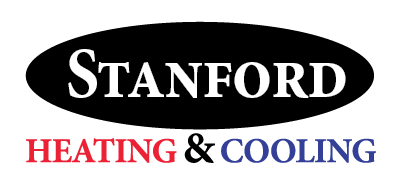
If you’re uncertain whether your Bloomfield residence has unhealthy indoor air quality (IAQ), it probably does.
We are indoors a lot. In reality, we’re in a building up to 90% of the time, according to the U.S. Environmental Protection Agency. And the air inside houses could be 2–5 times more contaminated than outdoors, which may create long-term health concerns.
Most Common Causes of Unsatisfactory IAQ
We’ve put together a list of the most ordinary origins of poor IAQ, the problems they create and how you can fix these indoor air pollutants. If you’re concerned about the air inside your residence, we advise consulting with a pro like Stanford Heating & Cooling about which solutions are best for your family.
Volatile Organic Compounds
Volatile organic compounds, or VOCs, are vapors leaked by regular household items.
They’re found in paint and stains in addition to:
- Furniture
- Carpet
- Building materials
- Cleaning products
- Cosmetics
- Air fresheners
- Candles
When these chemicals accumulate in your home, they may irritate your eyes, nose and throat. They can also result in headaches and nausea. Regardless of whether your residence is in a rural or industrial area, an EPA study found indoor levels of these pollutants can be 2–5 times worse than the air outside your home.
Always follow the manufacturer’s instructions when painting or cleaning. Unlatching a window can help odors disperse faster.
Air purification systems can also help. This equipment partners with your heating and cooling equipment to enhance indoor air. When hunting for a system, ensure it’s specifically created to wipe out VOCs.
Dust and Pet Dander
Dust and pet dander can irritate health problems like asthma and allergies, especially when it continuously gets redistributed by your home’s comfort system. While you can vacuum more regularly and install an improved air filter, an air filtration system may be a better match.
This solution hooks to your comfort equipment to give strong filtration. Some types provide hospital-level filtration for removing particles and bioaerosols.
Persistent Odors
New houses are securely sealed to boost energy efficiency. While this is great for your heating and cooling bill, it’s not so good for your IAQ.
Musty odors can stay around for a greater amount of time since your residence is pulling in a smaller amount of fresh air. Because keeping your windows open all year-round isn’t a possibility, here are two ways you can make your indoor air smell cleaner.
An air purification system is put in your ducts to eliminate odors before they are redistributed. Search for one with a carbon filter and the capability to wipe out dangerous VOCs. This equipment can also help keep your household healthy by wiping out most bacteria and normal allergy triggers like pollen and mold spores.
A ventilation system takes out stuffy indoor air and exchanges it with crisp outdoor air. There are two kinds of units (heat recovery and energy recovery), so check with our professionals for more info on which type is ideal for your home.
Uneven Humidity
It’s important your residence’s humidity remains even. Air that has too much moisture can cause mold, while dry air can cause respiratory concerns.
Our professionals suggest 40–50% for the best comfort. To keep yours steady, think about getting a whole-home humidifier or whole-home dehumidifier with your comfort system.
Rather than having to lug a humidifier from room to room, this product delivers balanced humidity across your house.
Carbon Monoxide
Carbon monoxide is colorless gas you can’t smell. It’s caused by insufficient combustion in fuel-burning appliances, like gas heating systems, water heaters or fireplaces.
It presents an extreme health risk. In low levels, it can lead to flu-like symptoms like headaches and nausea. It could be fatal in big levels.
We suggest annual furnace maintenance to ensure your unit is running like it should. This service allows our technicians to see troubles before they start, including malfunctions that can cause carbon monoxide leaks.
The best way to keep your house free of carbon monoxide is to install detectors. These alarms must be on each floor close to bedrooms and living areas.
Enhance Your Residence’s Air Quality with the Stanford Heating & Cooling Specialists
Know that your house has bad air quality but not sure how to make it better? Or unsure which solution is right for you? Give our approachable HVAC specialists a call at 812-825-8695 or contact us online now. With free estimates and expert service, we’ll help you choose the best option for your home and budget.

